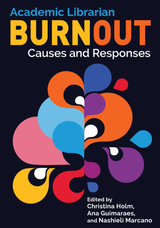
Academic Librarian Burnout can help librarians develop the agency to challenge the assumptions and practices that have led to so much professional burnout. In five thorough parts, it offers ways to discuss burnout in our work environments, studies burnout’s nature and causes, and provides preventative intervention and mitigation strategies:
- Reframing Burnout
- Conditions that Promote Burnout
- Lived Experiences
- Individual Responses to Burnout
- Organizational Responses to Burnout

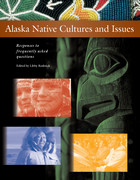
Making up more than ten percent of Alaska's population, Native Alaskans are the state's largest minority group. Yet most non-Native Alaskans know surprisingly little about the histories and cultures of their indigenous neighbors, or about the important issues they face. This concise book compiles frequently asked questions and provides informative and accessible responses that shed light on some common misconceptions. With responses composed by scholars within the represented communities and reviewed by a panel of experts, this easy-to-read compendium aims to facilitate a deeper exploration and richer discussion of the complex and compelling issues that are part of Alaska Native life today.
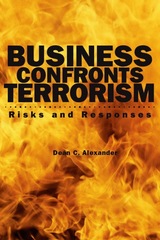
These scenarios could be part of a future Hollywood movie. Sadly, they are representative of previous terror attacks against industry and government interests worldwide. Moreover, they are harbingers of global terror threats.
Industry constitutes a prime target of contemporary terrorism. This timely book analyzes the threats companies face due to terrorism, industry responses to these dangers, and terrorism’s effects on conducting business in the post-9/11 environment. Dean C. Alexander details the conventional and unconventional terror capabilities facing industry. He describes the activities of terrorists in the economic system and the ways they finance their operations.
Alexander discusses how companies can reduce terrorist threats and that corporate security can minimize political violence. He outlines the dynamics of the public-private partnership against terrorism: government aiding industry, business supporting government, and tensions between the two. He also delineates terrorism’s effects—financial, physical, and emotional—on workers and employers. He highlights the negative financial and economic consequences of terrorism. He discusses the impact of terrorism on traditional business practices and concludes with an assessment of future trends.
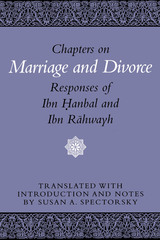
While western-derived legal codes have superseded Islamic law in many parts of the Muslim world, Islamic, Koran-based law still retains its force in the area of marriage and family relations, the area that is key to the status of women. This work makes available for the first time in English three compilations of responses to questions about family law given by two prominent Muslim jurists of the ninth century (third century of Islam)—Ahmad b. Hanbal, the eponymous founder of the Hanbali rite of Sunni Islam (the one dominant in Saudi Arabia), and Ishaq b. Rahwayh. These compilations are basic sources for the study of the development of legal thinking in Islam.
The introduction to the translation locates the compilations in a historical context and elucidates how the various issues of family law are treated. An appendix contains a collation of the significant variants among the manuscripts and printed versions of the Arabic texts. The volume concludes with a topical index and an index of names.
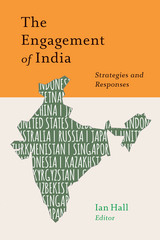
As India emerges as a significant global actor, diverse states have sought to engage India with divergent agendas and interests. Some states aspire to improve their relations with New Delhi, while others pursue the transformation of Indian foreign policy—and even India itself—to suit their interests. The Engagement of India explores the strategies that key states have employed to engage and shape the relationship with a rising and newly vibrant India, their successes and failures, and Indian responses—positive, ambivalent, and sometimes hostile—to engagement. A multinational team of contributors examine the ways in which Australia, China, Japan, Russia, and the United States have each sought to engage India for various purposes, explore the ways in which India has responded, and assess India’s own strategies to engage with Singapore, Vietnam, Indonesia, and the Central Asian republics.
This informative analysis of the foreign relations of a key rising power, and first comparative study of engagement strategies, casts light on the changing nature of Indian foreign policy and the processes that shape its future. The Engagement of India should be of interest to students and scholars of international relations, diplomacy, and South Asia.
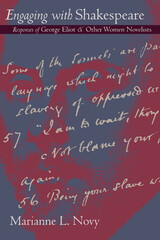
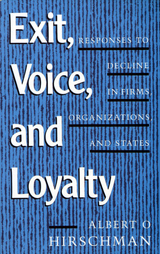
An innovator in contemporary thought on economic and political development looks here at decline rather than growth. Albert O. Hirschman makes a basic distinction between alternative ways of reacting to deterioration in business firms and, in general, to dissatisfaction with organizations: one, “exit,” is for the member to quit the organization or for the customer to switch to the competing product, and the other, “voice,” is for members or customers to agitate and exert influence for change “from within.” The efficiency of the competitive mechanism, with its total reliance on exit, is questioned for certain important situations. As exit often undercuts voice while being unable to counteract decline, loyalty is seen in the function of retarding exit and of permitting voice to play its proper role.
The interplay of the three concepts turns out to illuminate a wide range of economic, social, and political phenomena. As the author states in the preface, “having found my own unifying way of looking at issues as diverse as competition and the two-party system, divorce and the American character, black power and the failure of ‘unhappy’ top officials to resign over Vietnam, I decided to let myself go a little.”
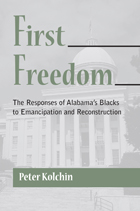

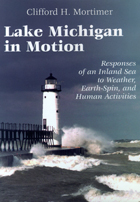

In the nearly three decades since the AIDS epidemic was first recognized, scientists have made tremendous strides in devising treatments for people living with HIV/AIDS. Yet in Africa, where more than 60 percent of HIV-infected people live, treatments remain out of reach for most.
A Line Drawn in the Sand captures the determination of several African nations in tackling the challenge of providing lifesaving antiretroviral therapies to their citizens: Botswana, which has some of the highest HIV infection rates worldwide; Nigeria, whose epidemic threatens to become one of the world’s largest; Senegal, often touted as one of the few countries with a model response to the HIV/AIDS epidemic; and Tanzania, whose extreme poverty threatens efforts to stem its epidemic.
By emphasizing the dramatic results that investments in AIDS treatments in Africa can bring, the book provides lessons to nations about scaling up their own treatment responses, hope to individuals and communities confronted with the often devastating impact of AIDS, and inspiration to the international HIV/AIDS community.

The books are an outgrowth of a collaborative effort involving international nongovernmental organizations including the United Nations Food and Agriculture Organization (UN FAO), the International Livestock Research Institute (ILRI), the Swiss College of Agriculture (SHL), the French Agricultural Research Centre for International Development (CIRAD), and the Scientific Committee for Problems of the Environment (SCOPE).
Volume 1 examines the forces shaping change in livestock production and management; the resulting impacts on landscapes, land use, and social systems; and potential policy and management responses.
Volume 2 explores needs and draws experience from region-specific contexts and detailed case studies. The case studies describe how drivers and consequences of change play out in specific geographical areas, and how public and private responses are shaped and implemented.
Together, the volumes present new, sustainable approaches to the challenges created by fundamental shifts in livestock management and production, and represent an essential resource for policy makers, industry managers, and academics involved with this issue.

From Kant to Kierkegaard, from Hegel to Heidegger, continental philosophers have indelibly shaped the trajectory of Western thought since the eighteenth century. Although much has been written about these monumental thinkers, students and scholars lack a definitive guide to the entire scope of the continental tradition. The most comprehensive reference work to date, this eight-volume History of Continental Philosophy will both encapsulate the subject and reorient our understanding of it. Beginning with an overview of Kant’s philosophy and its initial reception, the History traces the evolution of continental philosophy through major figures as well as movements such as existentialism, phenomenology, hermeneutics, and poststructuralism. The final volume outlines the current state of the field, bringing the work of both historical and modern thinkers to bear on such contemporary topics as feminism, globalization, and the environment. Throughout, the volumes examine important philosophical figures and developments in their historical, political, and cultural contexts.
The first reference of its kind, A History of Continental Philosophy has been written and edited by internationally recognized experts with a commitment to explaining complex thinkers, texts, and movements in rigorous yet jargon-free essays suitable for both undergraduates and seasoned specialists. These volumes also elucidate ongoing debates about the nature of continental and analytic philosophy, surveying the distinctive, sometimes overlapping characteristics and approaches of each tradition. Featuring helpful overviews of major topics and plotting road maps to their underlying contexts, A History of Continental Philosophy is destined to be the resource of first and last resort for students and scholars alike.
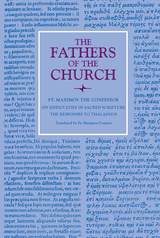

Drawing on a wealth of archival and recently published material, contributors detail the calculated destruction of a Jewish town by the Germans and present a chilling picture of life in occupied Minsk. They look at the cultural developments of the war as well as the wartime experience of intellectuals, for whom the period was a time of relative freedom. They discuss women's myriad roles in combat and other spheres of activity. They also reassess the behavior and morale of ordinary Red Army troops and offer new conclusions about early crushing defeats at the hands of the Germans–-defeats that were officially explained as cowardice on the part of high officers.
A frank investigation of civilian life behind the front lines, The People's War provides a detailed, balanced picture of the Stalinist USSR by describing not only the command structure and repressive power of the state but also how people reacted to them, cooperated with or opposed them, and adapted or ignored central policy in their own ways. By putting the Soviet people back in their war, this volume helps restore the range and complexity of human experience to one of history's most savage periods.

From Kant to Kierkegaard, from Hegel to Heidegger, continental philosophers have indelibly shaped the trajectory of Western thought since the eighteenth century. Although much has been written about these monumental thinkers, students and scholars lack a definitive guide to the entire scope of the continental tradition. The most comprehensive reference work to date, this eight-volume History of Continental Philosophy will both encapsulate the subject and reorient our understanding of it. Beginning with an overview of Kant’s philosophy and its initial reception, the History traces the evolution of continental philosophy through major figures as well as movements such as existentialism, phenomenology, hermeneutics, and poststructuralism. The final volume outlines the current state of the field, bringing the work of both historical and modern thinkers to bear on such contemporary topics as feminism, globalization, and the environment. Throughout, the volumes examine important philosophical figures and developments in their historical, political, and cultural contexts.
The first reference of its kind, A History of Continental Philosophy has been written and edited by internationally recognized experts with a commitment to explaining complex thinkers, texts, and movements in rigorous yet jargon-free essays suitable for both undergraduates and seasoned specialists. These volumes also elucidate ongoing debates about the nature of continental and analytic philosophy, surveying the distinctive, sometimes overlapping characteristics and approaches of each tradition. Featuring helpful overviews of major topics and plotting road maps to their underlying contexts, A History of Continental Philosophy is destined to be the resource of first and last resort for students and scholars alike.
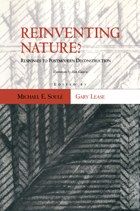
How much of science is culturally constructed? How much depends on language and metaphor? How do our ideas about nature connect with reality? Can nature be "reinvented" through theme parks and malls, or through restoration?
Reinventing Nature? is an interdisciplinary investigation of how perceptions and conceptions of nature affect both the individual experience and society's management of nature. Leading thinkers from a variety of fields -- philosophy, psychology, sociology, public policy, forestry, and others -- address the conflict between perception and reality of nature, each from a different perspective. The editors of the volume provide an insightful introductory chapter that places the book in the context of contemporary debates and a concluding chapter that brings together themes and draws conclusions from the dialogue.
In addition to the editors, contributors include Albert Borgmann, David Graber, N. Katherine Hayles, Stephen R. Kellert, Gary P. Nabhan, Paul Shepard, and Donald Worster.
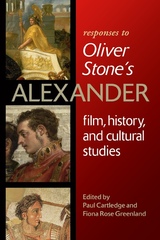
This volume brings together an intriguing mix of leading scholars in Macedonian and Greek history, Persian culture, film studies, classical literature, and archaeology—including some who were advisors for the film—and includes an afterword by Oliver Stone discussing the challenges he faced in putting Alexander’s life on the big screen. The contributors scrutinize Stone’s project from its inception and design to its production and reception, considering such questions as: Can a film about Alexander (and similar figures from history) be both entertaining and historically sound? How do the goals of screenwriters and directors differ from those of historians? How do Alexander’s personal relationships—with his mother Olympias, his wife Roxane, his lover Hephaistion, and others—affect modern perceptions of Alexander? Several of the contributors also explore reasons behind the film’s tepid response at the box office and subsequent controversies.
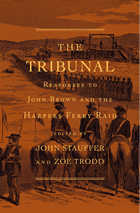
When John Brown led twenty-one men in an attack on the federal arsenal at Harpers Ferry on October 16, 1859, he envisioned a biblical uprising of millions of armed bondsmen, thus ridding the nation of the scourge of slavery. The insurrection did not happen, and Brown and the other surviving raiders were quickly captured and executed. This landmark anthology, which collects contemporary speeches, letters, newspaper articles, journals, poems, and songs, demonstrates that Brown’s actions nonetheless altered the course of American history.
John Stauffer and Zoe Trodd have assembled an impressive and wide-ranging collection of responses to Brown’s raid: Brown’s own words, northern and southern reactions, international commentary, and reflections from the Civil War and Reconstruction era. Represented here are all the figures one would expect to see (Lincoln, Thoreau, Frederick Douglass), many surprises (John Wilkes Booth, Karl Marx, Giuseppe Garibaldi), as well as free and enslaved blacks and white citizens. The result is a book that views Brown from multiple vantage points.
The Introduction describes the panic that Harpers Ferry created in the South, splitting the Democratic Party along sectional lines and altering the outcome of the 1860 presidential election. Without Brown, it speculates, the Civil War and emancipation would have been delayed by another four years—probably more—which in turn might have disrupted emancipation movements in Brazil, Cuba, and even Russia. The Tribunal is essential reading for anyone interested in the Civil War era and the history of social protest movements.
READERS
Browse our collection.
PUBLISHERS
See BiblioVault's publisher services.
STUDENT SERVICES
Files for college accessibility offices.
UChicago Accessibility Resources
home | accessibility | search | about | contact us
BiblioVault ® 2001 - 2024
The University of Chicago Press









